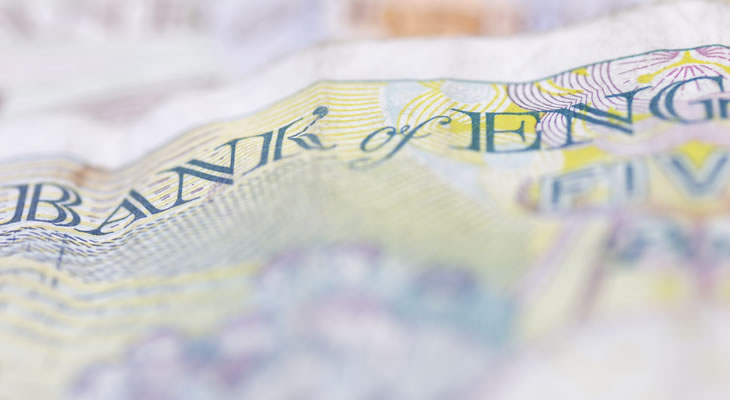- Pound Sterling exchange rates cool on disappointing data
- Euro exchange rates climb after US labour market data missed estimates
- Slowing German construction output and retail sales growth limit Euro uptrend
- GBP/EUR exchange rate forecast to hold losses into the weekend
Pound Sterling (GBP) Exchange Rates Mixed as New Car Registrations Slow
The Pound Sterling to Euro (GBP/EUR) exchange rate declined by around -0.3% on Friday afternoon.
With the exception of risk-correlated assets, the Pound Sterling softened versus its major peers today. The depreciation can be linked to political uncertainty as local elections provide mixed results. Improvement for Labour could be considered positive thanks to their pro-Europe leanings, but the advancement of UKIP in Wales goes some way to eroding trader confidence.
Domestic data produced disappointing results today. On the year, April’s New Car Registrations came in at 4.4%, which was significantly lower than the 5.3% growth registered previously. In addition, BDO produced a report that showed shop sales growth slid to the lowest level since the financial crisis in 2009.
The BDO report stated; ‘April’s like-for-like sales fell by a staggering six percentage points (-6.1%) compared to the same month last year, leading to the worst monthly LFL figure since February 2009 (-8.1%) when the UK was in the midst of a global economic crisis. After the mild decline in sales experienced in March, retailers started April with high hopes. Seasonal discounting and soft spring line launches led to a slight mid-month boost, however significant post Easter sales didn’t emerge as hoped with consumers opting to shun the high street and retail spending in general.’
The Pound Sterling to Euro (GBP/EUR) exchange rate is currently trending in the region of 1.2671.
Euro (EUR) Exchange Rates Climb despite Soft German Data
Although German data showed that both construction output and retail sales slowed in April, the single currency managed to register fractional daily gains versus the majority of its currency rivals. Whilst the data did little to inspire confidence, the results nevertheless showed continued growth in both sectors.
Commenting on the Markit Germany Construction PMI survey data, Oliver Kolodseike, economist at Markit, said:
‘Latest survey results signalled that the upturn in Germany’s construction sector is down but not out at the start of the second quarter. The headline PMI fell to a five-month low, but remained in territory that is consistent with ongoing growth of construction output. The residential building sector was once again the main source of the overall expansion, though commercial and civil engineering also managed to eke out marginal growth. It looks likely that the sector will continue to experience favourable conditions in coming months, with constructors the most optimistic about their future prospects since 2006, underpinned by rising new business and sustained job creation.’
Perhaps the main reason behind the Euro’s appreciation was disappointing US labour market ecostats. Both the Unemployment Rate and Change in Non-Farm Payrolls failed to meet with the respective median market forecasts. This weighed on bets regarding the timing of a Federal Reserve cash rate increase. The longer the delay for tighter Fed policy the better for the Euro given concerns regarding divergent policy outlooks.
The Pound Sterling to Euro (GBP/EUR) exchange rate dropped to a low of 1.2626 during Friday’s European session.
GBP/EUR Exchange Rate Forecast: BoE Rate Decision in Focus
Over the coming week there will be a number of British and European ecostats with potential to provoke Pound Sterling to Euro (GBP/EUR) exchange rate volatility. However, trader focus is likely to be dominated by the Bank of England’s (BoE) interest rate decision and accompanying Inflation Report. Although the central bank is not expected to make any changes at this time, any sign that policymakers are considering easing outlook could significantly dent demand for the UK unit. Additionally, a reduction to inflation forecasts would have a significantly detrimental impact on the British Pound.
In terms of influential Eurozone data next week, Friday’s German and Eurozone Gross Domestic Product data is likely to have a significant impact.
The Pound Sterling to Euro (GBP/EUR) exchange rate reached a high of 1.2713 during Friday’s European session.


Comments are closed.